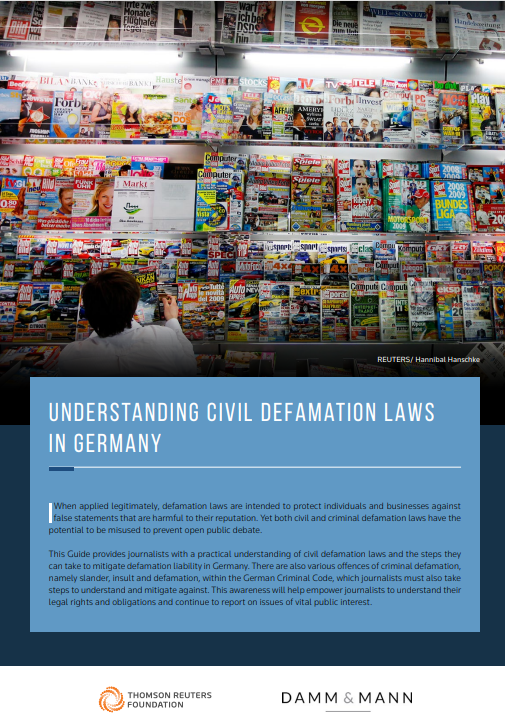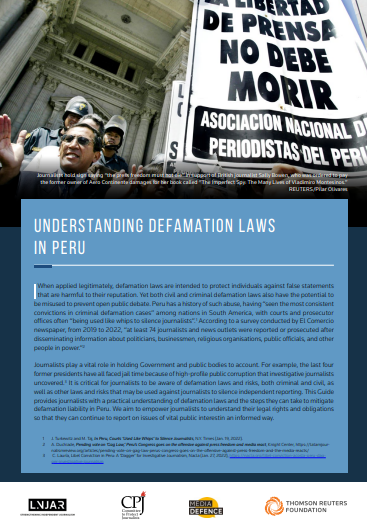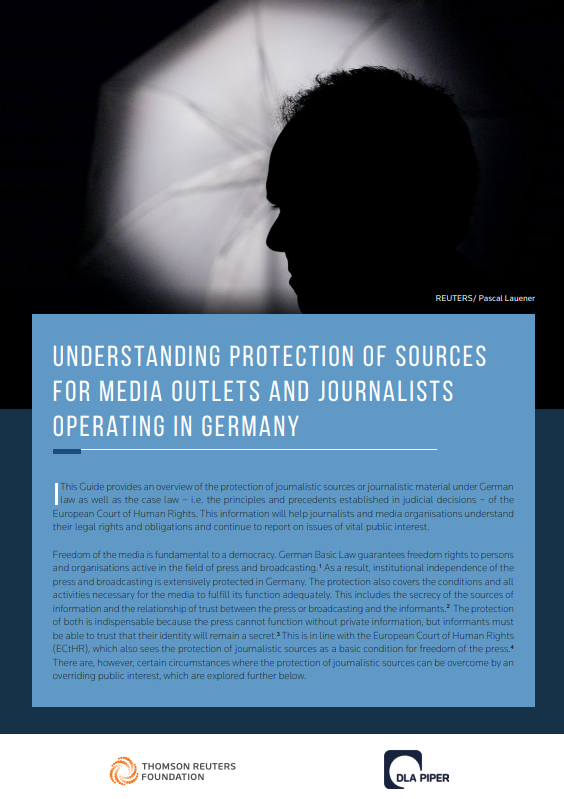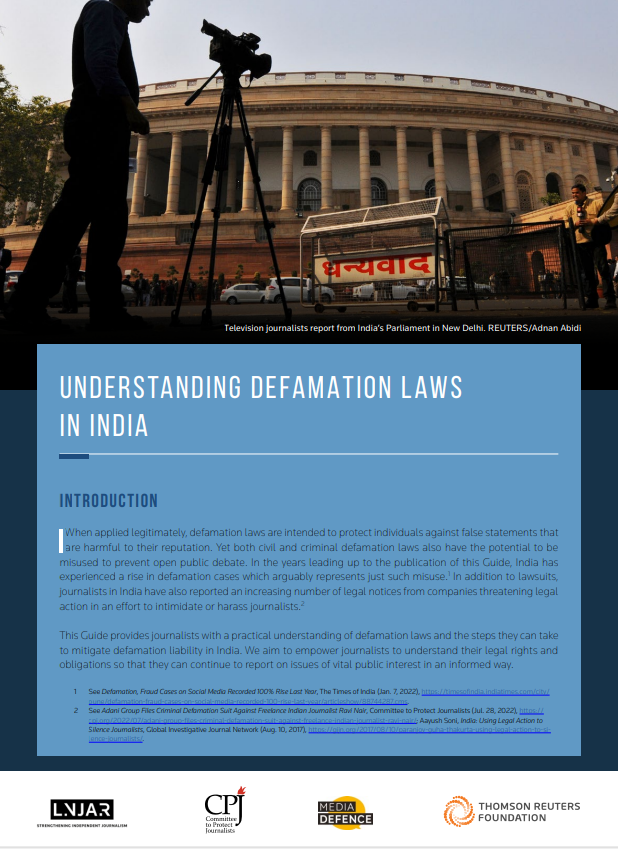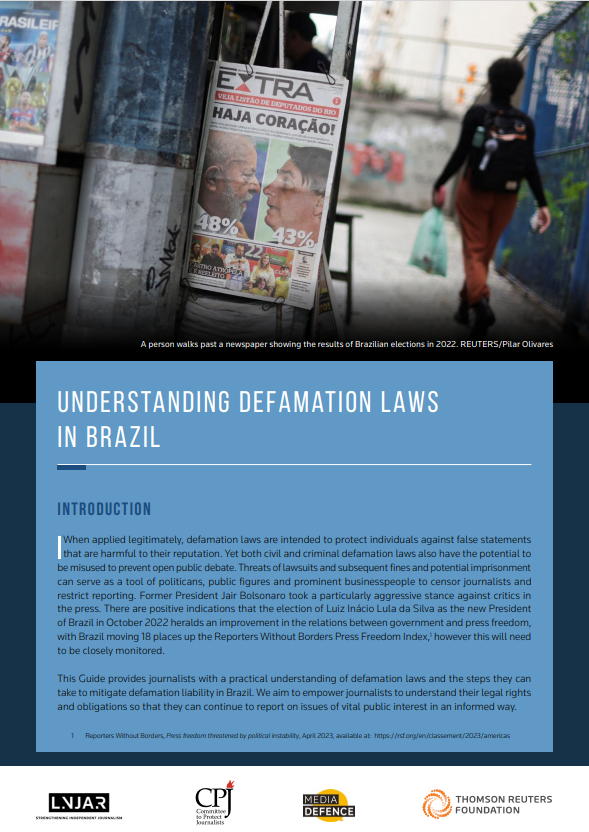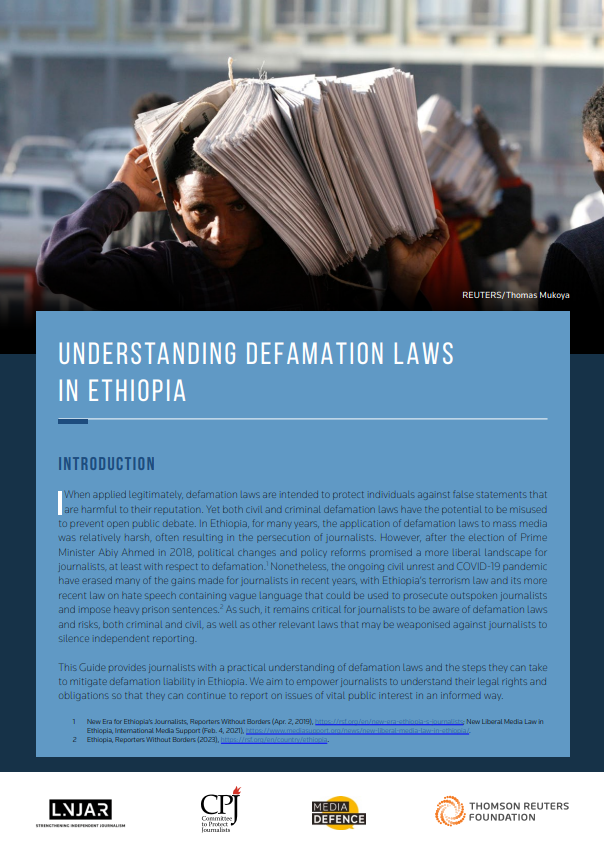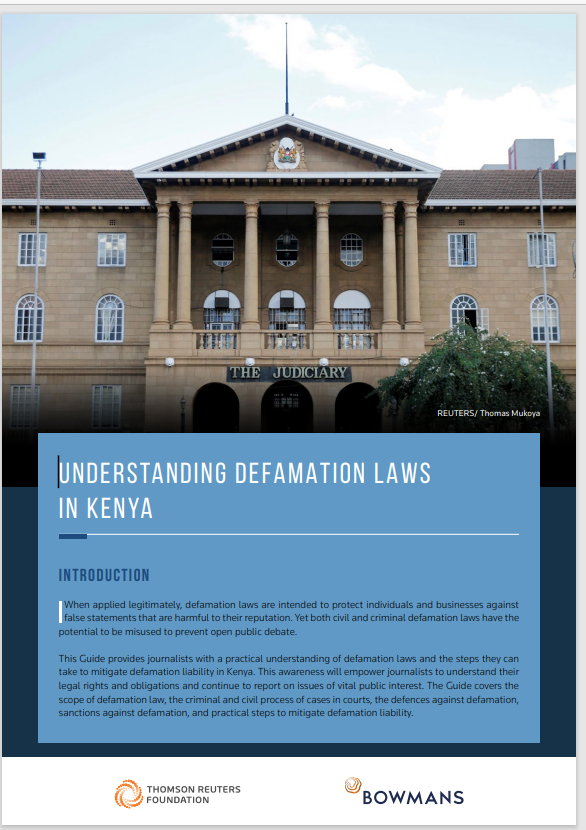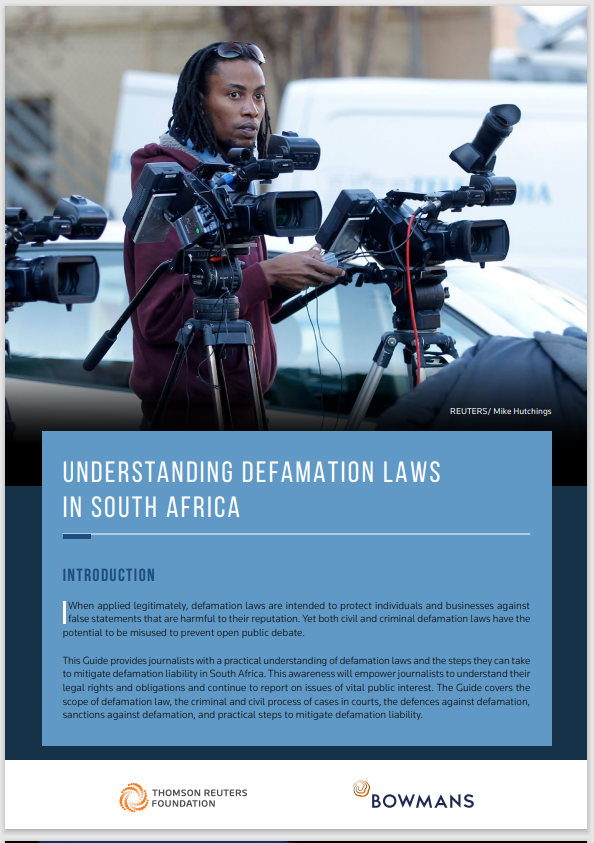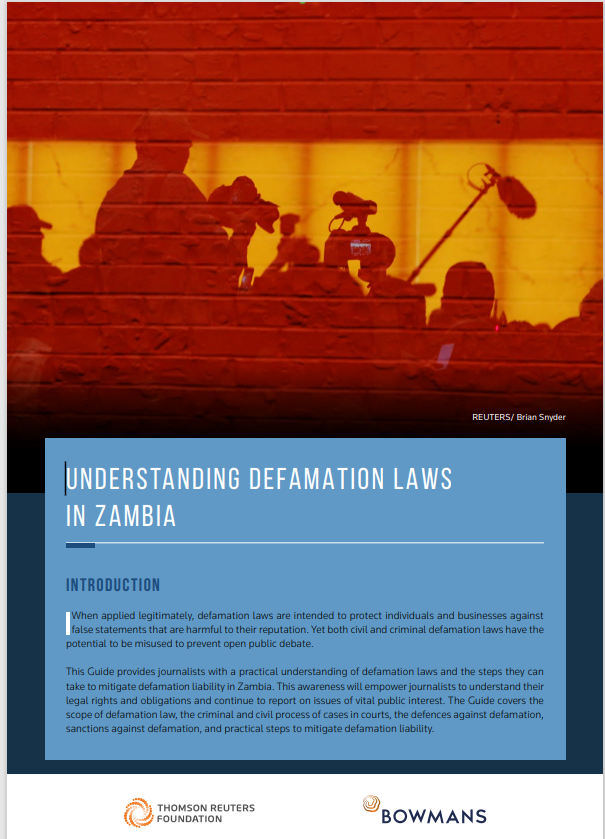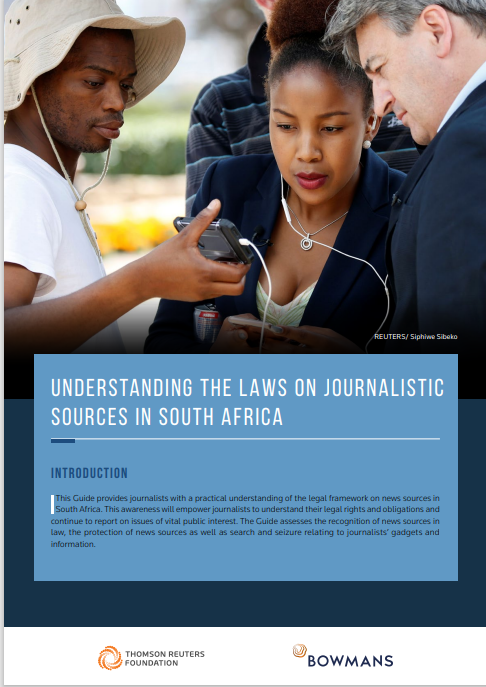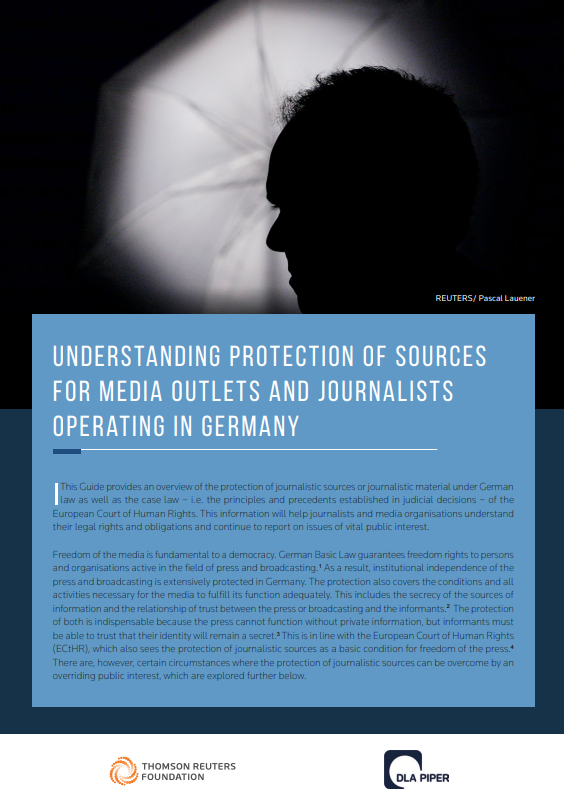
German Basic Law guarantees fundamental rights and freedom to persons and organisations active in the field of press and broadcasting. As a result, independence of the press and broadcasting is extensively protected in Germany, which extends to protecting the secrecy of sources of information. There are, however, instances where the protection of journalistic sources can be overridden by public interest.
This Guide provides an overview of the protection of journalistic sources or journalistic material under German law, as well as case law examples from the European Court of Human Rights. It is intended to help journalists and media organisations understand their legal rights and obligations, and continue to report on issues of vital public interest. This Guide was produced by the Thomson Reuters Foundation, with pro bono legal research provided by DLA Piper.
Related resources
View all
Workforce Disclosure in 2023: trends and insights
…

Reuters Institute Digital News Report 2024
…
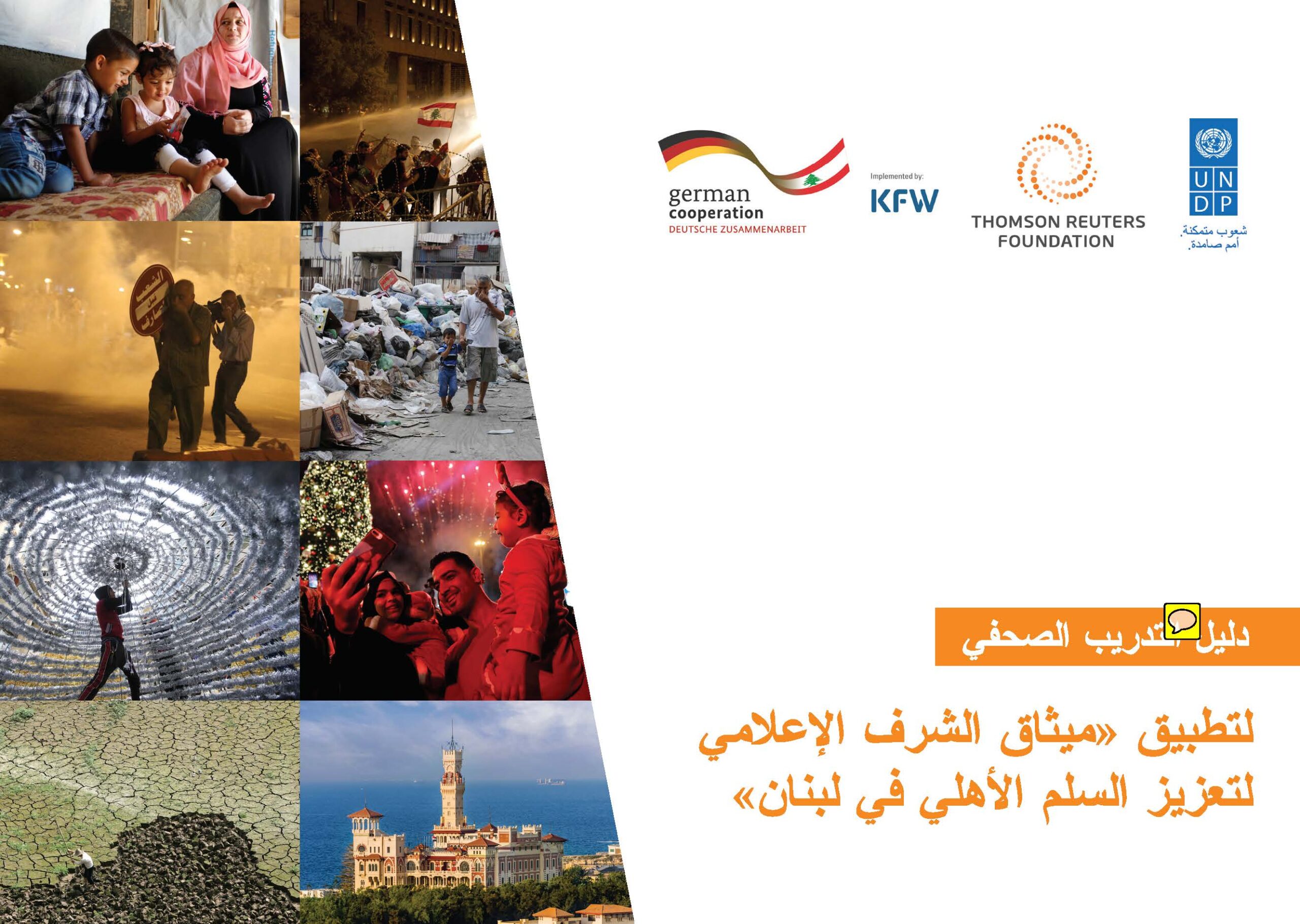
ARABIC Journalists’ toolkit: “Journalists’ Pact for Strengthening Civil Peace in Lebanon”
…
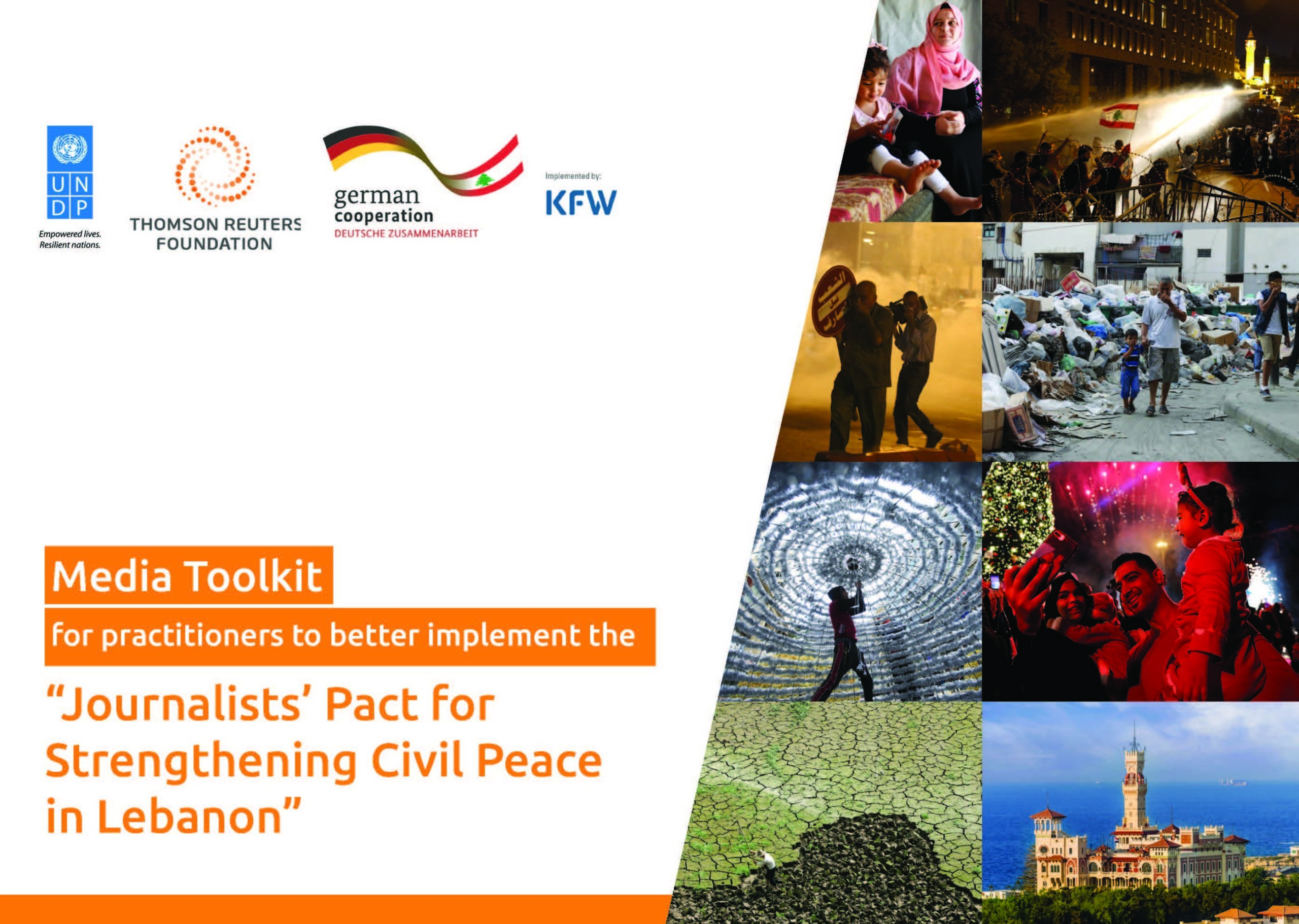
Journalists’ toolkit: “Journalists’ Pact for Strengthening Civil Peace in Lebanon”
…

Amplifying the “S” in ESG: Investor Myth Buster (content Missing)
About The Thomson Reuters Foundation has facilitated a new partnership, bringing together civil society, experts, and the private sector to emphasise …
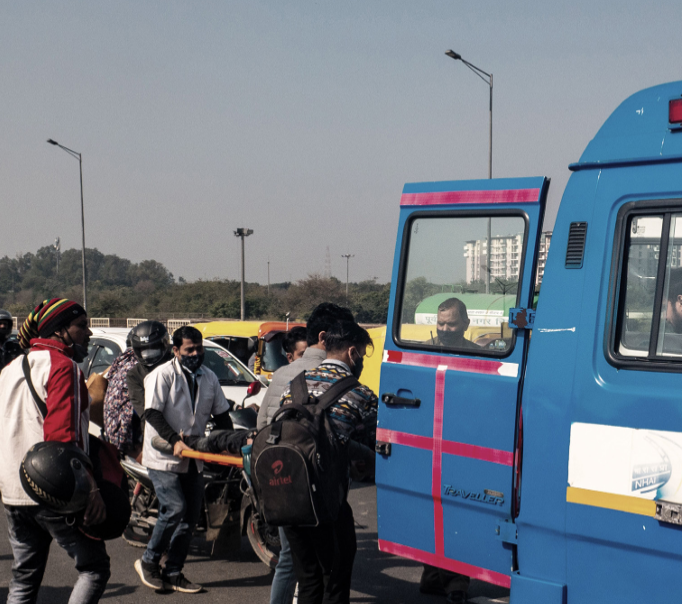
Global Comparative Research on Right to Emergency Medical Care
This report compiles and analyzes laws from different countries regarding emergency medical care, including those that guarantee it as a fundamental r…
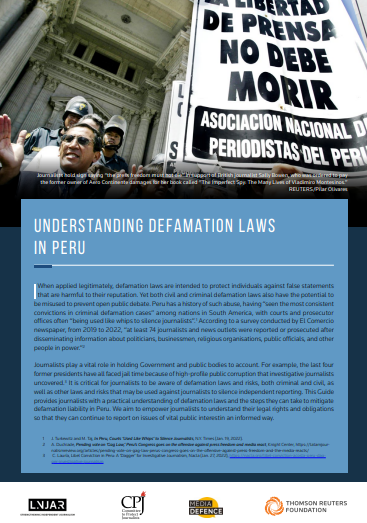
Understanding Defamation Laws in Peru
When applied legitimately, defamation laws are intended to protect individuals and businesses against false statements that are harmful to their reput…
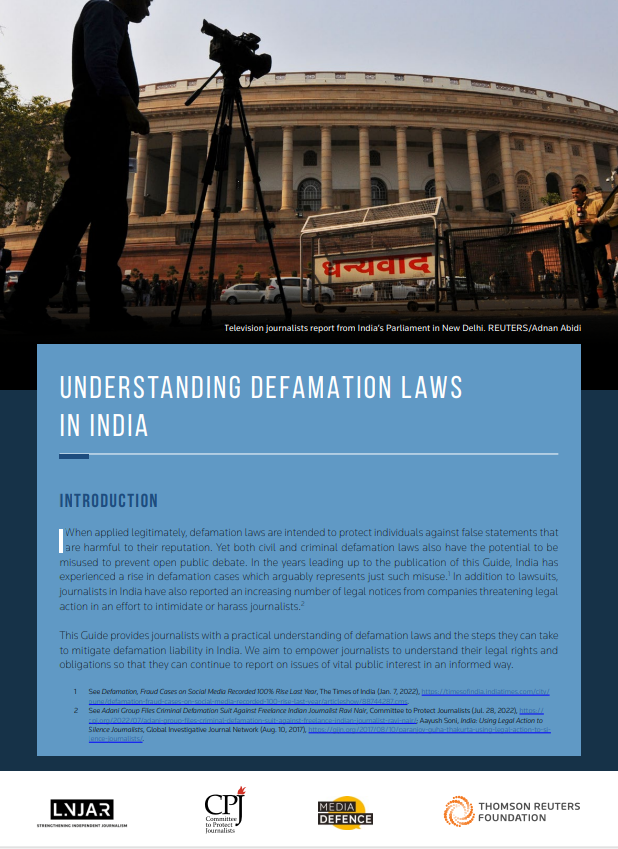
Understanding Defamation Laws in India
When applied legitimately, defamation laws are intended to protect individuals and businesses against false statements that are harmful to their reput…
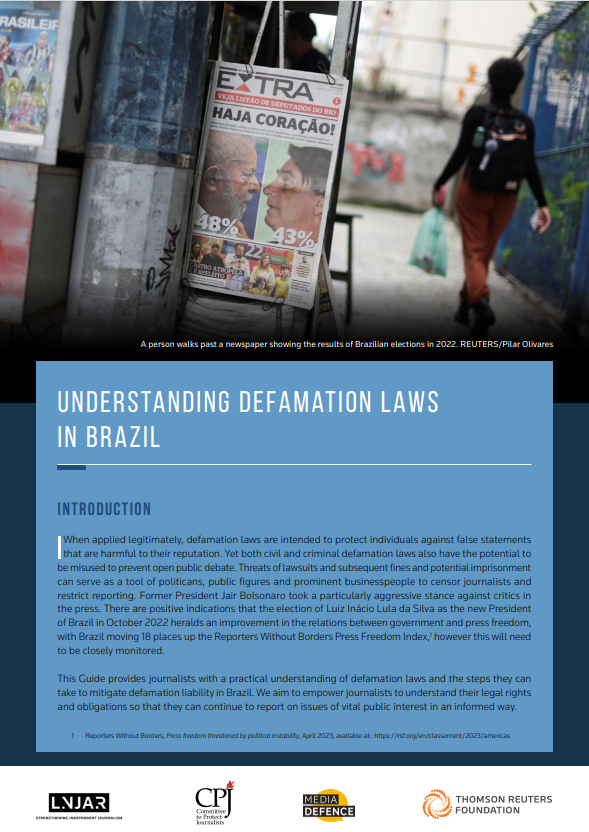
Understanding Defamation Laws in Brazil
When applied legitimately, defamation laws are intended to protect individuals and businesses against false statements that are harmful to their reput…
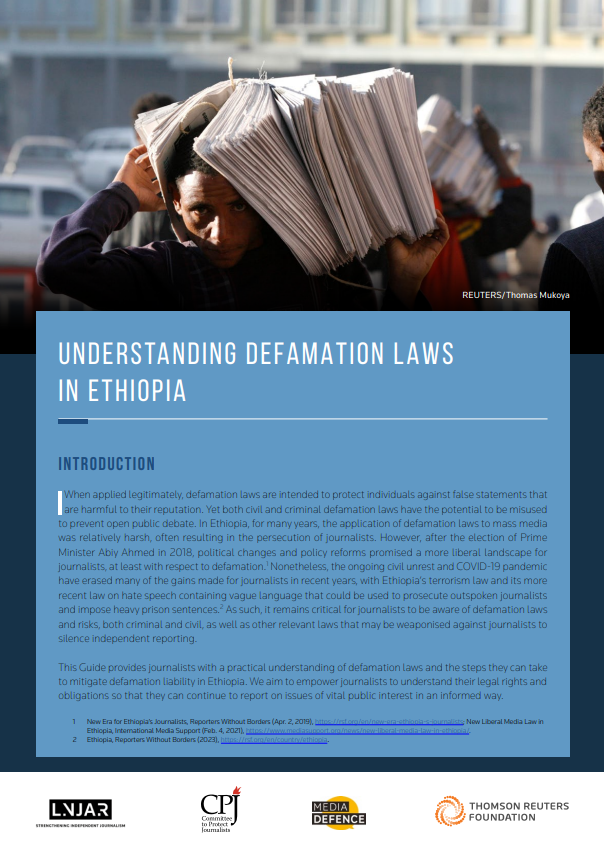
Understanding Defamation Laws in Ethiopia
When applied legitimately, defamation laws are intended to protect individuals and businesses against false statements that are harmful to their reput…



